We Speak on Behalf of the Multitudes in the Margins
NRDC staff reflect on Asian and Pacific Islander American Heritage Month, and their work creating a more compassionate, more inclusive, and more just future.
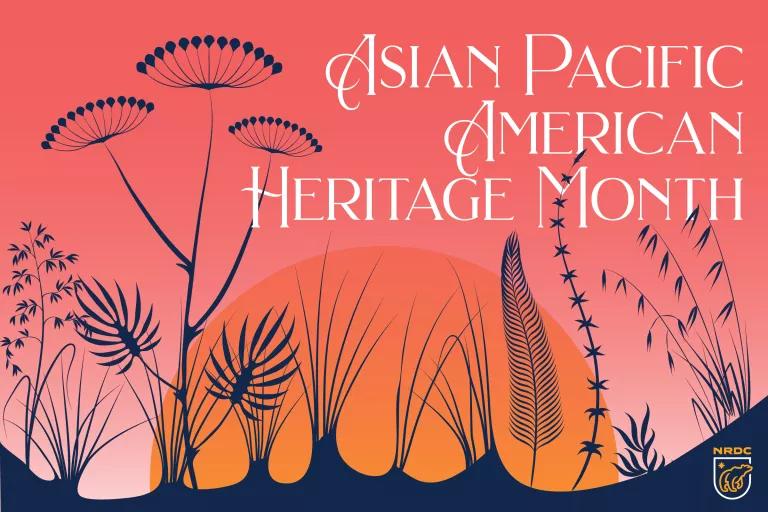
The space we take up on the sidewalk. The stereotypes we are branded with. The pride we have in our culture. The collective home we are fighting for.
During Asian Pacific American Heritage Month, NRDC staff of South Asian, Southeast Asian, and East Asian heritage, with ancestors from Hawaii and other islands in the Pacific, reflect on both their roots and their future. In 2020, amid a surge of racist attacks on Asian Americans, they ask themselves, what does this heritage mean today? And how do they work to inspire a new generation of environmental and social justice advocates—one that reflects the true fabric of our diverse society? Here are some of their answers.
Bora Chang
Senior Writer, Communications
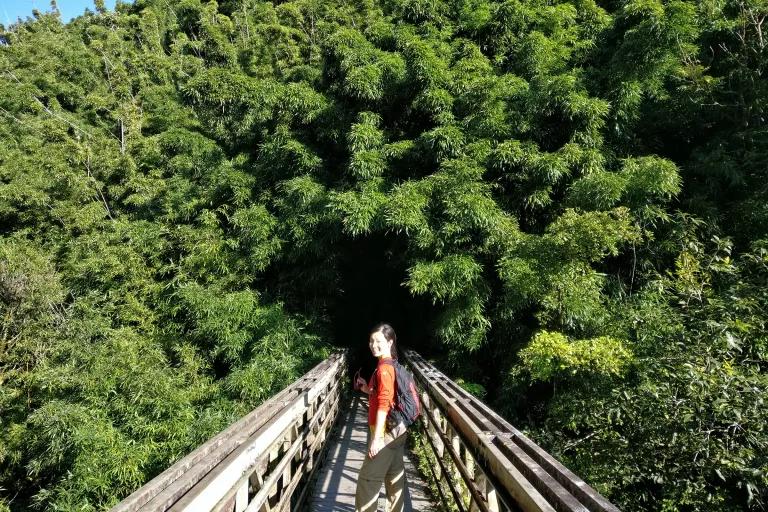
When I think of being Korean-American in 2020, I think of the space I take up on the sidewalk, and the mask-erade dance we now do to avoid getting within a six-foot radius of others. I think also of the space that I may need to widen quickly if I encounter someone who may lob insults, spit, or throw acid at me simply because I’m Asian and that person thinks I might harbor the “Chinese Virus.”
Space is a tricky matter for Asian Americans, especially those who have gone through the immigrant experience, as I have. In the United States, Asians have inhabited an ill-defined space—a gray area arguably not as marginalized as Black people and other people of color, but still edged out to a clouded boundary. We either disappear in talk about race in America or we’re selected into a mix as evidence of “the model minority,” depending on who is doing the storytelling. It has meant being part of a picture, but casually ignored, othered, or talked over when you cannot speak as quickly or as acceptably as others. It has been a lifelong struggle to figure out how to navigate these indistinct zones and to stake out those in which we belong—whether on the sidewalk, in the office, or in communities—only now made much more difficult by people in power stoking xenophobia and hate.
As COVID-19 continues to wreak havoc on an already disjointed, defenseless society, I approach the next steps of our work on behalf of the environment and climate justice with cautious determination. We are all fighting for our collective home—even as many of us are bereft of one because of the climate crisis, like tens of millions of people from Asian countries may be by 2050, which will have untold downstream consequences for everyone. We cannot fight for our place on this planet without acknowledging the need to make room, give space, and give voice to the multitudes in the margins. This work is difficult, especially now when we keep having to prove the humanity of all people of color, but there is no other way. When we do away with those boundaries, we’ll clear the way for more people to join in solidarity for a more compassionate and just future.
Kimi Narita
Director of Buildings and Energy, American Cities Climate Challenge, Healthy People & Thriving Communities program
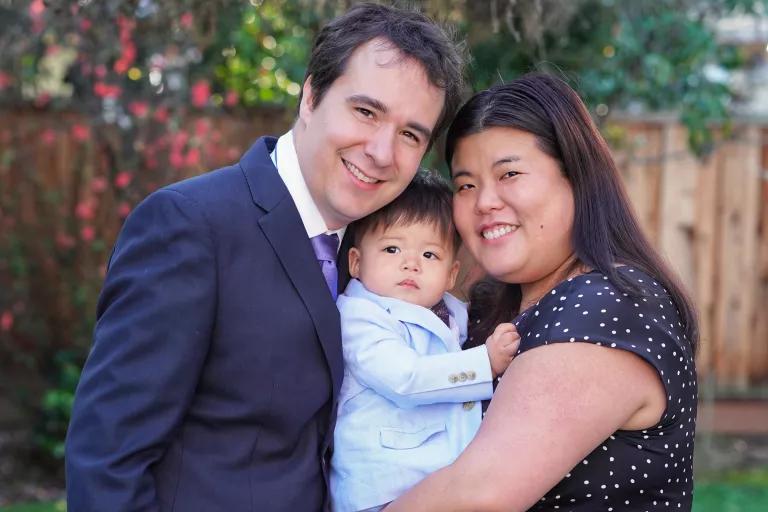
My son was born in 2019 and has my last name: Narita. My husband is Caucasian with the last name of Brooks, and I knew if we went the more traditional route, my son could grow up “passing” as white—at least on paper. Some of my Asian American friends thought I was crazy and told me my son’s life would be easier with an “American” last name. They are right, of course.
And didn’t I want his life to be easier? To be easier than mine? At first instinct, my answer was yes. But then I realized that’s not the right question for my family. The right question was: “What aspects of his heritage do we want reflected in his name?” My son is fifth-generation Japanese-American and third-generation Chinese-American. We wanted that heritage to be not only visible in his last name but openly honored and celebrated. Now, just a year later, there is overwhelming racism and xenophobia against Asians and Asian Americans. While scary and hurtful, I will not lose my pride in my family histories. And I relentlessly work toward a world where my son will be seen and celebrated as the multiracial person he is.
Vijay Limaye
Climate Change and Health Science Fellow, Science Center
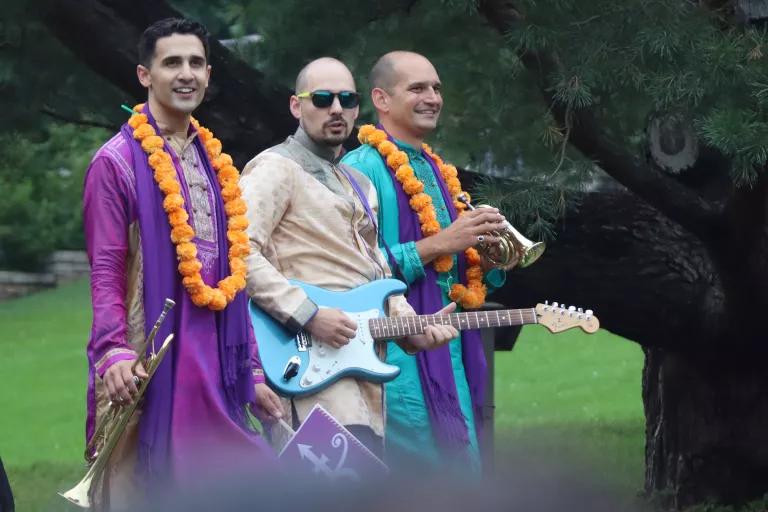
My first trip to my father's hometown in Pune, India, 15 years ago opened my eyes to the interconnected problems of air pollution and climate change, and the ways in which the global south already suffers disproportionate harm from these threats. Today, as an environmental health scientist at NRDC's Science Center, I am interested in integrating data and evidence about climate and health impacts into advocacy focused on solutions to our climate crisis. I'm grateful to be able to support our work in India, including projects that aim to build resilience against the types of climate-fueled health harms that endanger people in countries far beyond South Asia. In doing this work, I hope to motivate the next generation of advocates to take the climate problem seriously and to also think creatively about ways in which to build a healthier and more equitable planet for all.
Ellen Lee
Program Coordinator, Water Initiatives, Nature and Healthy People & Thriving Communities programs
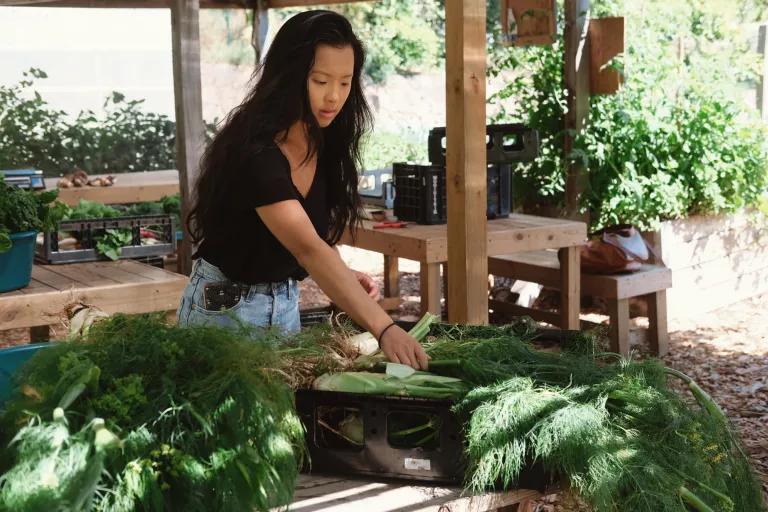
Growing up as a first-generation Chinese-American, I was always taught to be resourceful and thoughtful about our water, food, anything. My sister and I spent lots of time in the kitchen with our mom. She taught us how to prepare many different vegetables so that we would not waste a single morsel. She showed us how we could create our own gray-water system by saving the water from washing our vegetables to water our garden. She taught us to eat fruits and vegetables that are in season—the way Mother Nature intended. Snap peas in the spring, mangos and watermelon in the summer, kabocha squash in the fall, and bok choy in the winter.
My grandparents, who had a home garden just shy of a small farm, brought my biology textbooks to life. They showed me that green beans, zucchini, bitter melon, tomatoes, dates, guavas, and lychees can flourish if you nurture the soil. They showed me how to make lemonade out of the lemons in the backyard. They showed me the beauty, humility, and empowerment that comes from soil-to-chopstick eating.
Life for my family always happens in the kitchen, and that’s how we celebrate and connect—through food. We share dishes, recipes, and that overgrown zucchini from the backyard. Food gives us the first taste into someone’s culture and their experiences. The table we share is what brings people together, to share experiences. In turn, these experiences build community, which ignites belief. And belief fosters change.
These are the lessons from my family that I carry with me. They are the ones who inspired me to join the environmental movement and help shape our food system.
Alison Hahm
Access to Nature Legal Fellow, Nature program
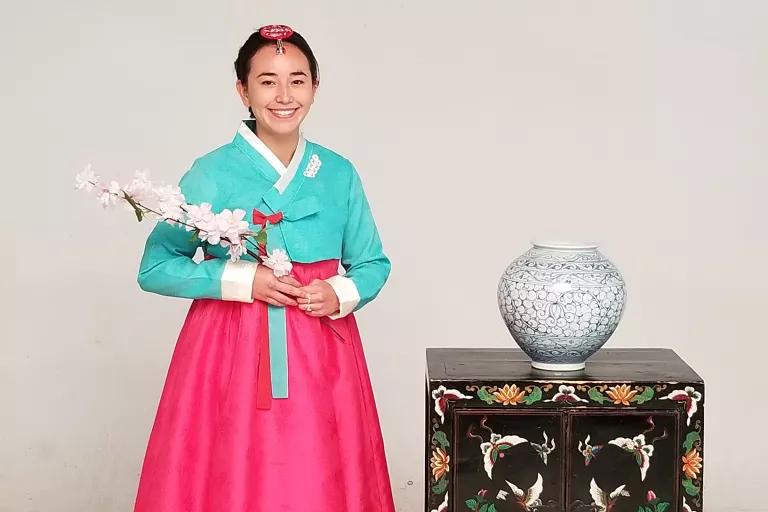
Being of Japanese and Korean heritage, I identify as hapa, a Hawaiian term meaning “part.” Although this term was once considered derogatory, I have always celebrated my hapa roots and even grown accustomed to the inevitable question: “What are you?”
On my father’s side, my grandfather was Korean and my grandmother was Japanese—they fell in love in Hawaii shortly after Japanese rule over Korea ended in 1945, a controversial period that continues to affect Japanese and Korean political relations today. Yet despite this undeniable tension, my grandparents remained resilient, decided to get married, and together, raised a family. My grandparents always insisted that my father and his siblings avoid living in the past by embracing the present moment, while at the same time fearlessly chasing their visions of a better future.
I work to inspire a new generation of environmental advocates by intentionally adopting this mentality. Without turning a blind eye to the past, I continue to encourage younger advocates to fully embrace the present moment and identify opportunities to work toward a better future.
Min Benjamin-Hong
Director of Video, Multimedia, Communications
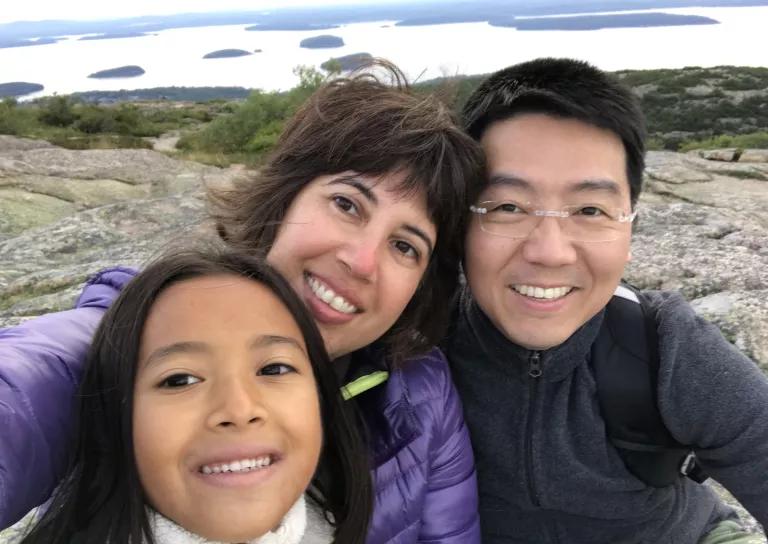
I’ve always been different. Growing up in the homogeneous country of South Korea in the late 1970s, I spent my time at home, practicing piano and violin instead of playing with friends. During the ’80s in the Bronx, I was branded a nerd and frequently called “chink,” “chino,” “gook,” and “fresh off the boat.” As a teenager, I was kicked out of church retreats for asking too many questions before I rejected my family’s Catholic faith and declared myself atheist. In my thirties, I left my Korean-American fiancée to marry an Indian-Jewish-Israeli woman and became a filmmaker, abandoning the profession of neuroscience and medicine carefully laid down by my parents.
So in spite of—or maybe because of—my experience of being an outsider, I never strongly identified myself with a specific group, whether it be religion, nationality, or race; these things were incidental to my self-identity.
I recently discussed Jacques Lacan’s theory of the armor of an alienating identity with my eight-year-old daughter. Lacan believed that if you’re too sure of who you think you are, then you’re precluding yourself from exploring and realizing who you can be. I told her that life is a journey, and success means growing to understand herself better.
The recent spike in anti-Asian sentiment in this country is not new, surprising, or unexpected. Such episodes have happened before to all marginalized communities in the past and are sure to happen again in the future. But I think that most of us want to do good and be good to each other, and to the natural world. And the road ahead—in building a greater democracy, in building a greener society—is built by focusing on inclusion, on our common good.
Dolores Abernathy, the robot protagonist of Westworld (spoiler alert), in the end, sees humans not only for who they are but also for who they can be. She explains her reason for wanting to save humanity despite having suffered repeated heinous injustices at the hands of humans: “There is ugliness in the world. Disarray. I choose to see the beauty.”
Jessica Jinn
Climate Advisor, American Cities Climate Challenge, Healthy People & Thriving Communities program
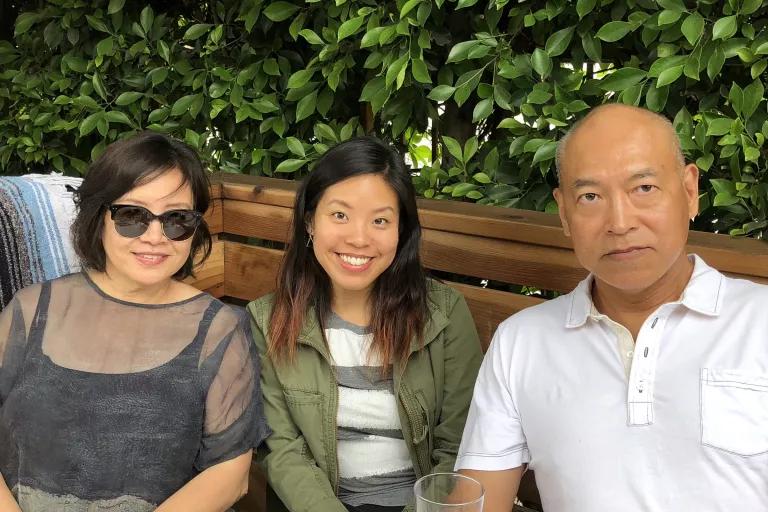
My mom has always taught me to be proud of our Chinese heritage: “We were the first people on earth,” she says. The people who invented paper, printing, the compass, and gunpowder.
And yet, so many of us feel invisible in this country. Our perceived value is that we’re good at math and are successful immigrants, completely erasing the complexity and diversity of Asian Americans and pitting us against other communities of color. I refuse to be complicit.
My grandparents fled China for Taiwan when Mao's power threatened their existence; my parents then left Taiwan while it was still ruled by martial law. From Japanese-American internment to civil wars, being Asian American carries with it a wide range of trauma.
With rising xenophobia and Sinophobia, we are reminded again of how precarious our place in America is. Asian Pacific American Heritage Month means that we’re all in this together. We need to show up for Black and Brown communities. We can’t afford to be silent. To me, 2020 is the year in which Asian Americans double down as a political force. In some ways, it’s a matter of survival.
Nina Sevilla
Program Assistant, Health and Food Division, Healthy People & Thriving Communities program
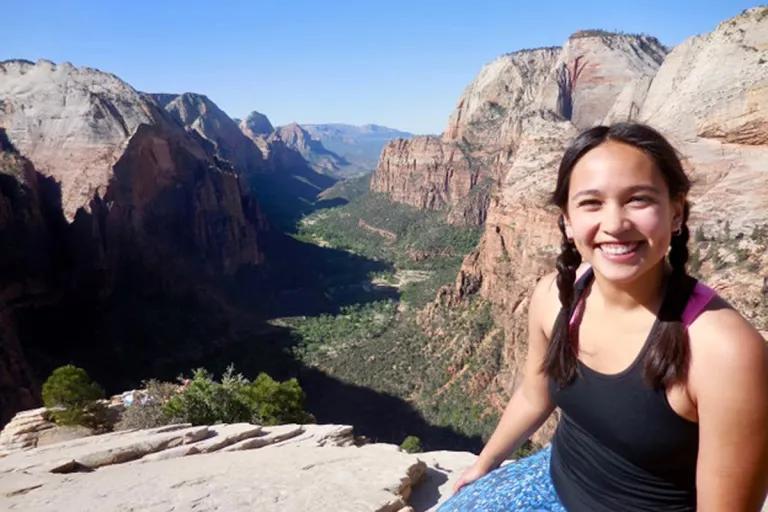
This past weekend, I made chicken adobo. It’s a vinegary, garlicky chicken dish popular in Filipino cuisine. I seldom had it growing up because my family never really cooked or ate Filipino food. Growing up in a predominantly white community, I went from trying to fit in and minimize my differences to embracing my Filipino heritage then back to minimizing it again. Being half-Filipino and half-white, I wasn’t sure where I fit in; I always felt I was too Asian to be white and too white to be Asian.
But as I grew up and learned more about my family and Asians in the United States, I realized that identity doesn’t have to be binary, and the world I live in has been shaped by generations of Asian Americans, including many Filipinos, fighting to make it better. For example, few people know that one of the country’s groundbreaking environmental justice fights, the Delano grape strike, was started by organizer Larry Itliong and the mostly Filipino Agricultural Workers Organizing Committee (AWOC), which later united with Cesar Chavez to form the United Farm Workers.
Even though I didn’t eat adobo or learn about Itliong until later in life, I still hold them as connections to my past. I am proud to be Asian American in 2020 and continue to fight to make the world a more equitable and just place.
Cynthia Wang
Princeton in Asia Fellow, Sustainable Cities, China program
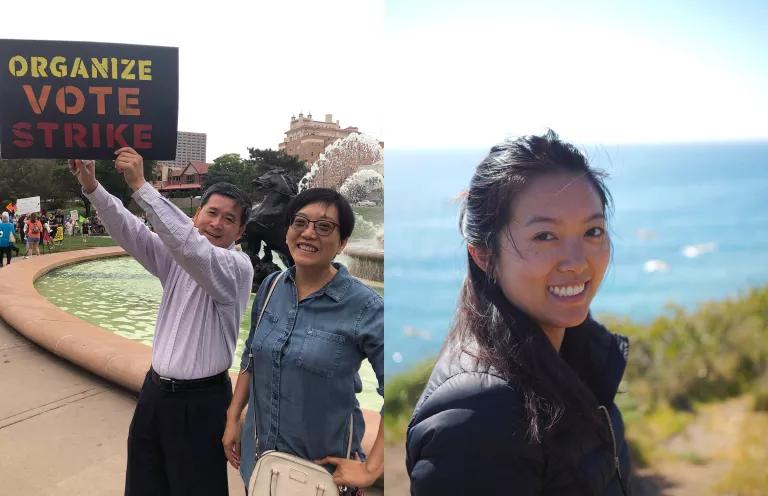
Last September, I took my first-generation Chinese-American parents to their first political protest in the United States. They were perplexed by my enthusiasm for wanting to protest on a Friday afternoon but still accompanied me as we met up with several hundred strangers in the city plaza. Led by Sunrise Kansas City, we demanded action from policy makers. My parents were very confused by how everyone knew the same chants. It was clear that marching in the climate strike was strange for them, yet they still tried to care about what I cared about.
My parents have lived in the United States for more than 25 years and show little political engagement—even getting them to vote is difficult. Meanwhile, my college institution made civic engagement readily accessible, inspiring me to pursue a meaningful career in advocacy. My education also showed me that without institutions guiding action, civic engagement still remains a daunting part of cultural assimilation for first-gen immigrants. Yet immigrant parents are often the ones who prioritize their children’s education and overcome countless assimilation complications so their children don’t have to. I work in climate advocacy to include these voices in the conversation, as my voice belongs to my parents and the history of Asian Americans who came before me.
Minah Choi
Program Assistant, Northern Rockies, Nature program
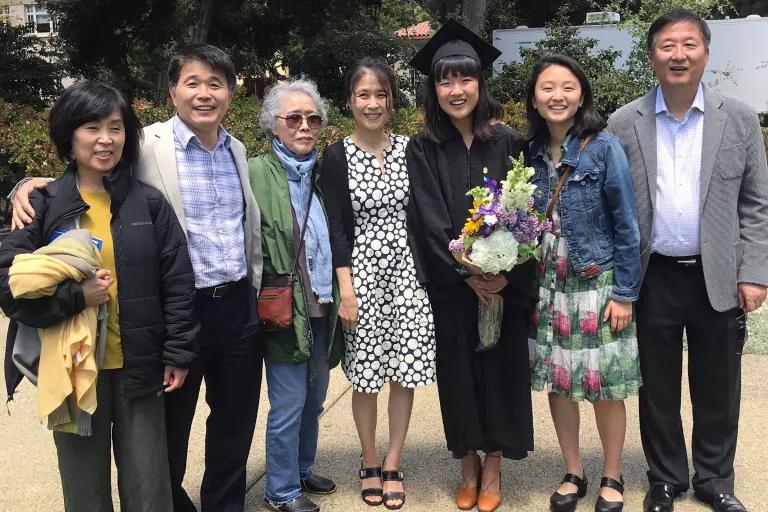
My perspective on Asian American/Pacific Islander (AAPI) heritage is rooted in the understanding that our experiences are built upon and made possible by those who have come before us, and that our identities are intersectional and constantly evolving.
Growing up as a second-generation Korean-American, I’ve seen firsthand the ways dominant cultures have challenged the AAPI community’s sense of safety and belonging, and, in turn, the ways that we’ve organized ourselves to overcome those racial, economic, and environmental injustices. I’ve also watched as AAPI have perpetuated systems of oppression and felt the need, more than ever, to help build a movement that works to uplift not only our communities but also others.
Therefore, to me, AAPI heritage means learning and unlearning new and old habits, showing up for communities, and taking care of family. For me, that includes thanking my parents and grandparents for the sacrifices they’ve made to provide me and my sister with the opportunities and lives we have today.
It’s a privilege to be a part of an organization like NRDC that is working every day to ensure a more just and inclusive future. I hope to inspire a new generation of environmental advocates by working to highlight the voices of individuals and communities, especially those on the frontline, who have historically been excluded.
In solidarity and power, happy AAPI heritage month!
This NRDC.org story is available for online republication by news media outlets or nonprofits under these conditions: The writer(s) must be credited with a byline; you must note prominently that the story was originally published by NRDC.org and link to the original; the story cannot be edited (beyond simple things such as grammar); you can’t resell the story in any form or grant republishing rights to other outlets; you can’t republish our material wholesale or automatically—you need to select stories individually; you can’t republish the photos or graphics on our site without specific permission; you should drop us a note to let us know when you’ve used one of our stories.

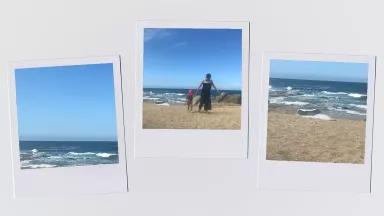
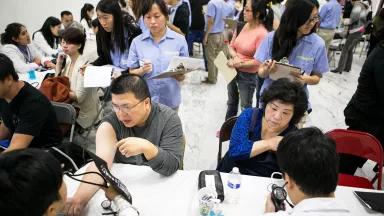
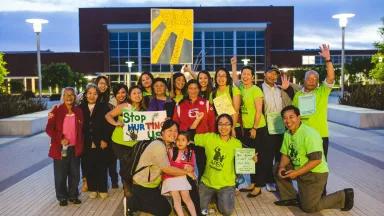
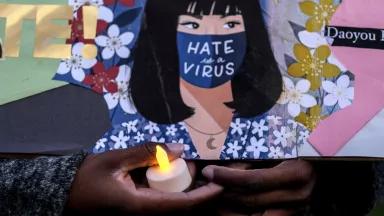
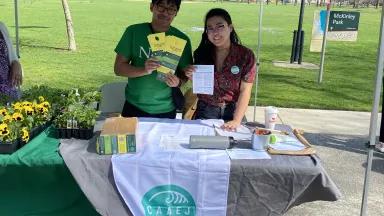
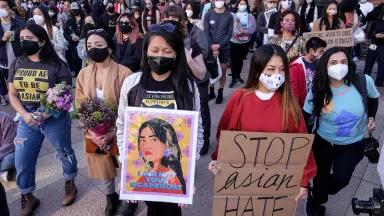
In Planning for Climate Change, Native Americans Draw on the Past
The Particulars of PM 2.5
What Is the Justice40 Initiative?